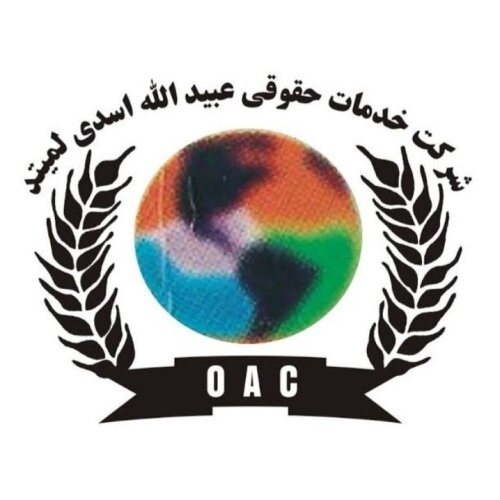Best Civil Rights Lawyers in Afghanistan
Share your needs with us, get contacted by law firms.
Free. Takes 2 min.
Or refine your search by selecting a city:
List of the best lawyers in Afghanistan
About Civil Rights Law in Afghanistan
Civil rights in Afghanistan encompass a range of protections and freedoms that are afforded to individuals under the legal framework of the country. These rights include, but are not limited to, equality before the law, freedom from discrimination on various grounds, and the right to freedom of speech and association. The Afghan Constitution, particularly under the current socio-political climate, plays a crucial role in defining and upholding these rights. It is vital to note that the civil rights landscape in Afghanistan has been evolving due to ongoing conflicts, political changes, and diverse cultural influences.
Why You May Need a Lawyer
Situations may arise where seeking legal counsel becomes essential to ensure the protection of civil rights. Common scenarios include experiencing discrimination based on ethnicity, religion, or gender, and violations of rights to privacy and freedom of speech. Additionally, legal assistance may be necessary for cases involving unlawful detention or lack of access to public services. Lawyers specializing in civil rights can provide guidance, representation, and help navigate the complexities of the legal system to safeguard individual rights.
Local Laws Overview
Afghanistan's legal system is influenced by Islamic Sharia, customary laws, and civil legislation. Key aspects of local laws relevant to civil rights include the Afghan Constitution, which guarantees equality and non-discrimination, and laws that address human rights issues. Customary laws, which vary in different regions, may sometimes conflict with formal laws, complicating civil rights issues. Furthermore, the implementation of these laws can be inconsistent due to varying interpretations and the influence of local power dynamics.
Frequently Asked Questions
1. What are my basic civil rights under Afghan law?
Basic civil rights under Afghan law include equality before the law, freedom from discrimination, and the right to freedom of speech, assembly, and religion.
2. How can I address a violation of my civil rights?
To address a violation, you may file a complaint with relevant authorities, engage a lawyer, or seek assistance from civil society organizations that focus on human rights.
3. Are there legal protections against discrimination?
Yes, the Afghan Constitution and other legal instruments provide protections against discrimination based on race, religion, gender, and ethnicity.
4. What should I do if I am unlawfully detained?
If unlawfully detained, you should seek legal representation immediately and contact human rights organizations that can provide support.
5. Can I obtain legal aid if I cannot afford a lawyer?
Legal aid may be available through governmental bodies or NGOs that offer free or low-cost services to individuals unable to afford legal representation.
6. How important is customary law in Afghan civil rights?
Customary law plays a significant role, particularly in rural areas, and can sometimes conflict with official civil rights protections, complicating legal proceedings.
7. How does the current political situation affect civil rights?
The political climate can greatly affect civil rights, influencing the enforcement of laws and the availability of protections, making it essential to stay informed about changes.
8. Can international bodies help with civil rights cases?
Yes, international human rights organizations can sometimes provide support or exert pressure for the protection and enforcement of civil rights.
9. What rights do women have under Afghan civil rights laws?
Women’s rights under Afghan law include the right to education, employment, and protection from violence; however, enforcement can be inconsistent.
10. How can I stay informed about changes in civil rights laws?
Stay informed by following local news, government publications, and reports from human rights organizations focused on Afghanistan.
Additional Resources
Several resources and organizations can assist individuals seeking guidance on civil rights in Afghanistan, including the Afghanistan Independent Human Rights Commission (AIHRC), legal aid organizations, and international bodies like Amnesty International and Human Rights Watch. These organizations offer support, advice, and advocacy for those in need.
Next Steps
If you require legal assistance in civil rights matters, begin by consulting a qualified lawyer with experience in Afghan civil rights law. Gather any relevant documentation related to your case and contact local human rights organizations for additional support and resources. Staying informed and proactive is crucial in navigating the legal system to protect and assert your civil rights effectively.
Lawzana helps you find the best lawyers and law firms in Afghanistan through a curated and pre-screened list of qualified legal professionals. Our platform offers rankings and detailed profiles of attorneys and law firms, allowing you to compare based on practice areas, including Civil Rights, experience, and client feedback.
Each profile includes a description of the firm's areas of practice, client reviews, team members and partners, year of establishment, spoken languages, office locations, contact information, social media presence, and any published articles or resources. Most firms on our platform speak English and are experienced in both local and international legal matters.
Get a quote from top-rated law firms in Afghanistan — quickly, securely, and without unnecessary hassle.
Disclaimer:
The information provided on this page is for general informational purposes only and does not constitute legal advice. While we strive to ensure the accuracy and relevance of the content, legal information may change over time, and interpretations of the law can vary. You should always consult with a qualified legal professional for advice specific to your situation.
We disclaim all liability for actions taken or not taken based on the content of this page. If you believe any information is incorrect or outdated, please contact us, and we will review and update it where appropriate.
Browse civil rights law firms by city in Afghanistan
Refine your search by selecting a city.









